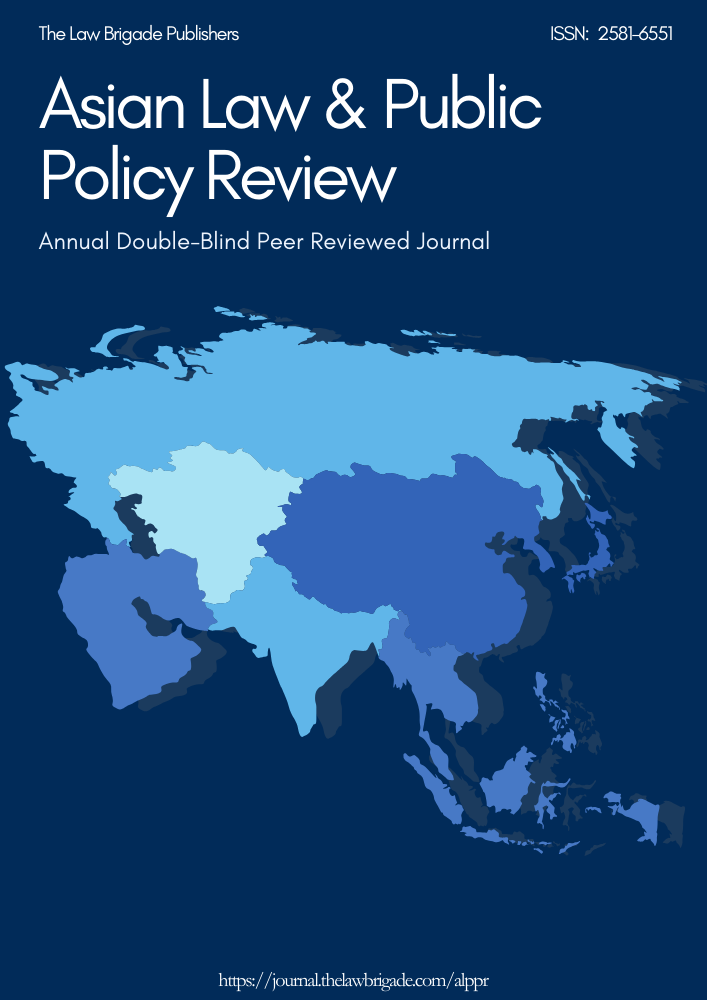Problematisation of Sex-Selective Conception and Abortion in India: Implications and Legal Responses
Keywords:
Arbitral Award, Arbitration Act, English Law of Arbitration, New York Convention, BangladeshAbstract
Discriminatory practices against women have been a common problem in Indian society since many decades. This is attributed to the rudimentary factor of a patriarchal dogma that is deeply rooted in our society. Women were mostly treated as a liability on the family and hence, treated sans dignified existence. Consequentially, inhuman social evils like female infanticide and female foeticide have been rampant. To aggravate the already persisting problem, modern technology in the form of assisted reproductive technology is being misused today for sex-selective conception. On account of such gender discriminatory practices, the declining sex ratio in India is still persisting. To remedy the evil of gender injustice, the Constitution of India envisions an egalitarian society to empower women. The attainment of the goal of gender equality is one of the most crucial Constitutional goals. In India, sex-selective conception and sex-selective abortion has been prohibited by the Pre-Conception and Pre-Natal Diagnostic Techniques (Prohibition of Sex Selection) Act, 1994 (Act 57 of 1994), the Medical Termination of Pregnancy Act, 1971 (Act 34 of 1971) and the Indian Penal Code, 1860 (Act 45 of 1860). The effective implementation of these laws is still not in sight. It is thus, a necessity to critically understand the gravity of the problems highlighted by taking into account of the social and cultural factors along with the existing legal framework.
Downloads
Downloads
Published
Issue
Section
License

This work is licensed under a Creative Commons Attribution-NonCommercial-ShareAlike 4.0 International License.
License Terms
Ownership and Licensing:
Authors of research papers submitted to any journal published by The Law Brigade Publishers retain the copyright of their work while granting the journal specific rights. Authors maintain ownership of the copyright and grant the journal the right of first publication. Simultaneously, authors agree to license their research papers under the Creative Commons Attribution-ShareAlike 4.0 International (CC BY-SA 4.0) License.
License Permissions:
Under the CC BY-SA 4.0 License, others are permitted to share and adapt the work, even for commercial purposes, provided that appropriate attribution is given to the authors, and acknowledgment is made of the initial publication by The Law Brigade Publishers. This license encourages the broad dissemination and reuse of research papers while ensuring that the original work is properly credited.
Additional Distribution Arrangements:
Authors are free to enter into separate, non-exclusive contractual arrangements for distributing the published version of the work (e.g., posting it to institutional repositories or publishing it in books), provided that the original publication by The Law Brigade Publishers is acknowledged.
Online Posting:
Authors are encouraged to share their work online (e.g., in institutional repositories or on personal websites) both prior to submission and after publication. This practice can facilitate productive exchanges and increase the visibility and citation of the work.
Responsibility and Liability:
Authors are responsible for ensuring that their submitted research papers do not infringe on the copyright, privacy, or other rights of third parties. The Law Brigade Publishers disclaims any liability for any copyright infringement or violation of third-party rights within the submitted research papers.


